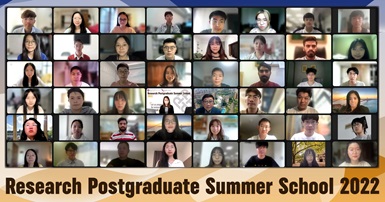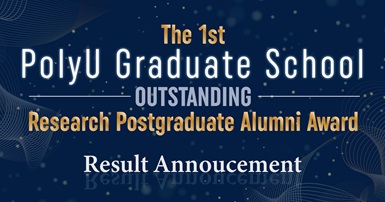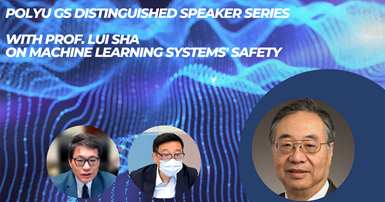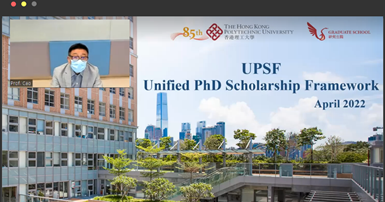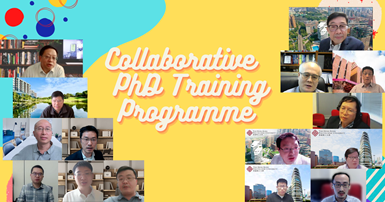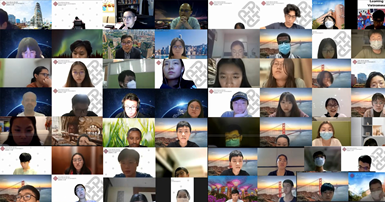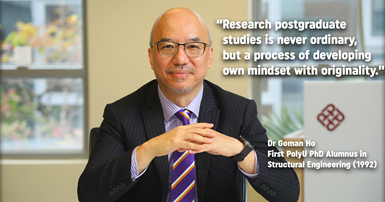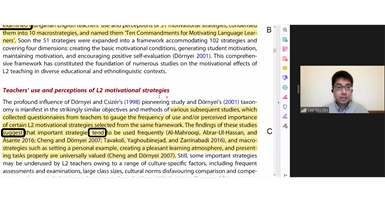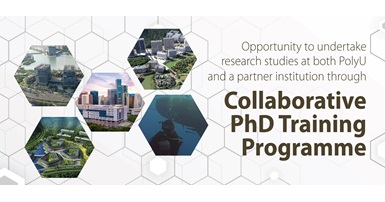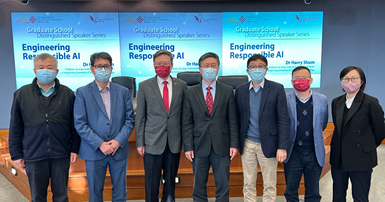Interview with the First PolyU Structural Engineering PhD Alumnus, Dr Goman Ho
The interview with our first PhD graduate from the Department of Civil and Environmental Engineering (CEE), Dr Goman Ho, has been rewarding. There were sparks in his eyes when we touched topics of research aspiration and shaping the world with an innovative vision.
Goman is an Arup Fellow and a seasoned director at Arup, a global architecture and engineering firm. He joined the firm after his PhD with expertise in high-rise buildings accumulating a height above nine kilometres. He has participated in mega projects, mapping especially the East Asia Region, best known for the Cheung Kong Centre in Hong Kong, National Stadium (the Bird’s Nest), National Aquatics Centre (the Water Cube), CCTV Headquarters and Capital International Airport Terminal 3, in Beijing. Goman also held adjunct professorships at PolyU and HKU, with over 30 technical papers and three books published. He is an active member in academia, research and charity work.
Q1. As our first PhD alumnus in Structural Engineering, how would you relate your work achievement to your past research study at PolyU?
PhD study opened my mind to innovation, seeking the best solution in complexity. After obtaining my Diploma in Structural Engineering at PolyU in 1984, I returned to my alma mater and finished my PhD degree in 1992. I am passionate in learning and am grateful to have met my supervisor, Professor S. L. Chan (Chair Professor of Computational Structural Engineering), who had shared a same interest in the research area of “semi-rigid connection” at that time.
Research postgraduate study focuses on reaching your set objective through researching existing solutions. With critical thinking, you either improve the established method or formulate a new way to handle the same problem. My working and research projects both hinge on novelty. I applied what I learnt from my research postgraduate study in finding new solutions to these projects even in distinctive parameters. With the skills and experience in reading technical papers, I continuously update myself with new knowledge, skills and technology.
Q2. How would you describe your research journey during the time?
It was an unforgettable research experience at PolyU! Among our group of research students, there were
different research disciplines, but peer learning was valuable. Back in the days when the speed of technology was comparatively slow, all our system codes were optimised by ourselves to reduce crunching time with limited hardware memory. We used many floppy disks for storing massive research data and findings.
Q3. What do you regard as your biggest takeaway from your research learning experience?
There were so many key takeaways. Instead, I would like to share a little story. My supervisor and I were at the stage of preparing a research methodology. I had a few failed attempts despite efforts based on what was shared, but I was hesitant to inform my supervisor of the unsuccessful result. I finally spent around three to four months in coming up with a new proposal and informed my supervisor. My supervisor and I revisited the problem together with an open mind, and we finally solved it. It was the interaction between the supervisor and research student that came foremost. There is a need to develop a critical eye and be able to filter information through experience gained.
Q4. What advice would you be sharing with our prospective and current research students?
PhD student is more of the role of a researcher than a student. It is crucial to be curious and ask questions,
and further define your research aim. We have to make choices throughout our lives, weighing the pros and cons for improvement or accommodation, and demonstrating our critical thinking and open-mindedness. Research is a training of thinking and innovation, and is way beyond a degree.
Q5. Under extreme climate change in the 21st century, what is regarded as a sustainable building?
At the geographical level, many regions express the pressing need of energy saving and controlling carbon emission footprint. Indeed, energy efficiency is taken in comparison, and the answer would be different when we compare that in the unit of a building and the overall unit. The total energy demand of a dense city with high-rises is less than that in a sparse city given the same population. With the consideration of culture, population and land resources, tall buildings are more apparent in Asia. Having said that, tall buildings could also be energy efficient on their own. For example, the Jockey Club Innovation Tower at PolyU, with building geometry as a bird, is an art embodiment of energy efficiency and innovative design. It was awarded the BEAM Plus Gold award from the Hong Kong Green Building Council (HKGBC).
Q6. Following your current research on Structural Skills Network and Modular Construction, would you explain more about your research vision with us?
I envision the innovation of a disciplined mass production to address the challenges faced by Hong Kong today, such as labour shortage and sustainability for the construction industry. It is to bring along production efficiency and advancement of their working condition, and balance the needs of different sectors in society such as hospitals and offices. When we talk about Industry 4.0 for the world, building construction also needs further industrialisation. Modular construction would be the future for Hong Kong.
The quote from Goman, “Even with the same materials and tools, we can still design and create breakthroughs using our imagination”, perfectly concluded the interview. We were fascinated to learn Goman’s planted seeds of passion and tenacity for lifetime research and contributions, in the unwavering pursuit of an advanced built environment.
